An essay covering the history lifestyle society and problems of nomads
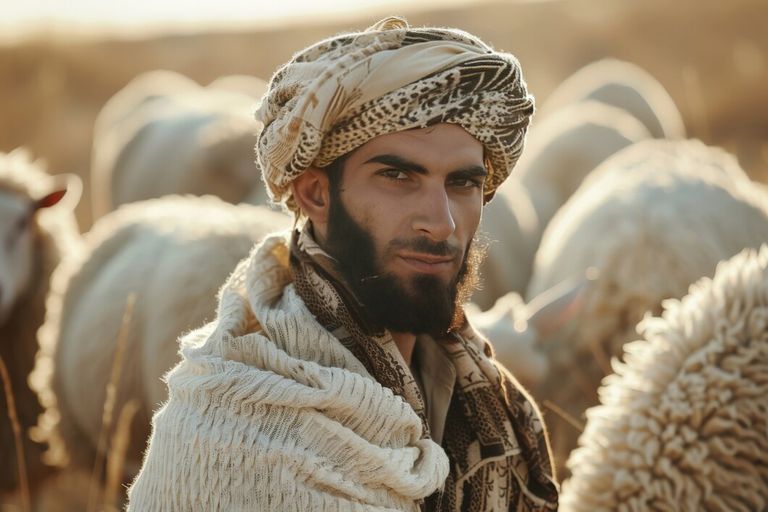
| Nomad is a Persian word that refers to a person who has no permanent abode. In English literature, the word vagrant is used for it. No, Gypsies belong to the backward class. |
|---|
| Nomads, who are called "Romani" in Europe, "Gaetano" in Spain, "Chungane" in Turkey, "Zingaro" in Italy, "Gaetano-Zigiz" in France, and "Banjare" in the subcontinent, likewise in different regions of the world, their names are also different. according to the culture. According to an estimate, the number of nomads around the world is more than one million. 80 percent of the nomads in the world live in European countries, while the remaining 20 percent live in America, Latin America and other regions of the world. For the word "settlement" refers to their temporary encampment. |
|---|
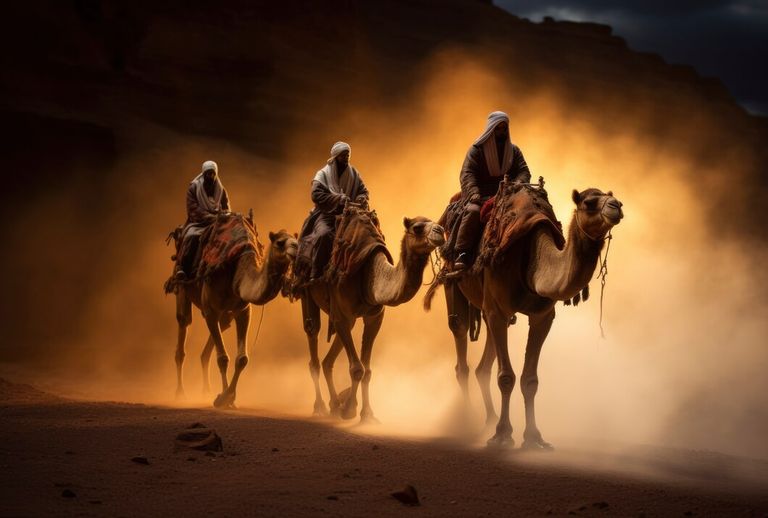
| Who are these nomads, where did they come from and how did they come into being? It has been researched for a long time. Must go along. |
|---|
| These Sarshams used to return to their abode, then after some time their encampment would be shifted somewhere else, after that the next step was taken towards agriculture, so they also made their abode around the fields and thus the "villages" The custom started to fall, most of the tribes were also those who were not convinced to sit in one place but preferred to be active. So this is where "Nomadism" started. |
|---|

| Due to nomadism, these people neither settled down permanently, nor built settlements, nor accumulated wealth nor built properties. Due to their constant movement around the world, although they speak many languages, they have their own language. It is called "Roma", which includes many words from sub-continent, Pakistan and India. As far as their traditions are concerned, they make very few connections due to traveling around the world. |
|---|
| The main reason for which is that they are in the minority, in addition to this, their camp is usually away from the population, so their interaction with the local people is less than others. Therefore, these marriages are also done by their own people. They do not deviate from it. With the passage of time, the times progressed but they did not change their lifestyle, clothes and lifestyle. |
|---|
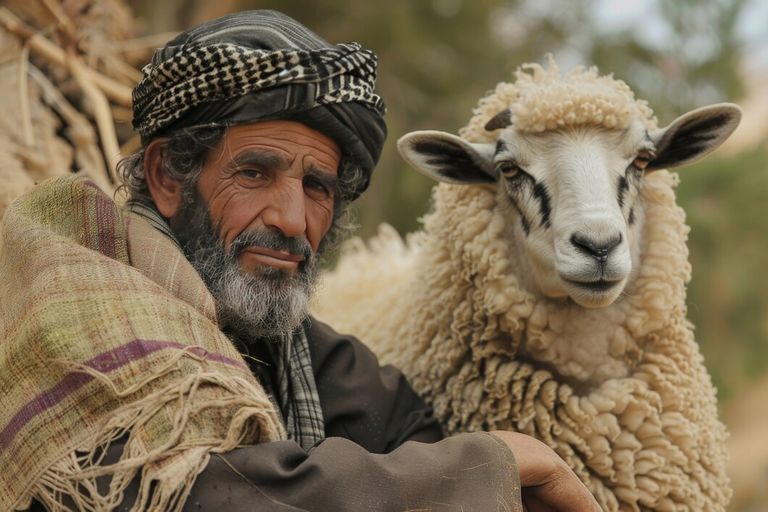
| This is the reason why they are recognized from afar because of their ancient traditional dress, earrings in their ears and their distinctive color. These people do not work because they are free natured people by birth, so they play sports for a living. They used to make spectacles and make iron tools and sell them. Their women made cloth by preparing thread and helped men in daily work. |
|---|
| These people themselves were deprived of education and kept their children away from education. Even in modern times, when the countries of Eastern Europe tried to settle them permanently, they preferred to remain independent. In this era too, he presented an alternative way of living and that is to live a simple life with happiness and joy, being free from all kinds of restrictions. |
|---|
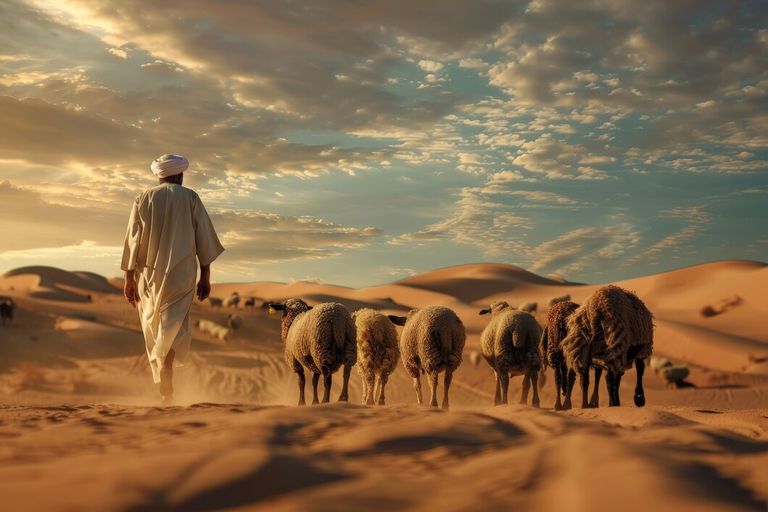
| The history of nomads: From China, Central Asia, Khorasan, Koh Qaf to France, Italy, Spain and Germany, the tribes scattered in the history are mentioned. Many of them abandoned the nomadism and joined the civilized world. After the era of food and hunting, some tribes settled down and settled permanently by adopting agriculture, but there were many tribes who did not give up the nomadic life. |
|---|
| They neither liked to live in settlements nor left their nomadic culture and integrated themselves into larger civilizations. For this reason, there was always a clash between culture and civilization between the nomads and the settlers. In the beginning, the settlers called them "barbarians", meaning savages. The settlers who adopted agriculture as a profession continued to organize their livelihood in a civilized way, while the nomads, when they could not get the daily necessities of life for survival, they went to the settlements. Looting and sometimes killing would be their means of livelihood. From here the nomads divided into two distinct classes. |
|---|
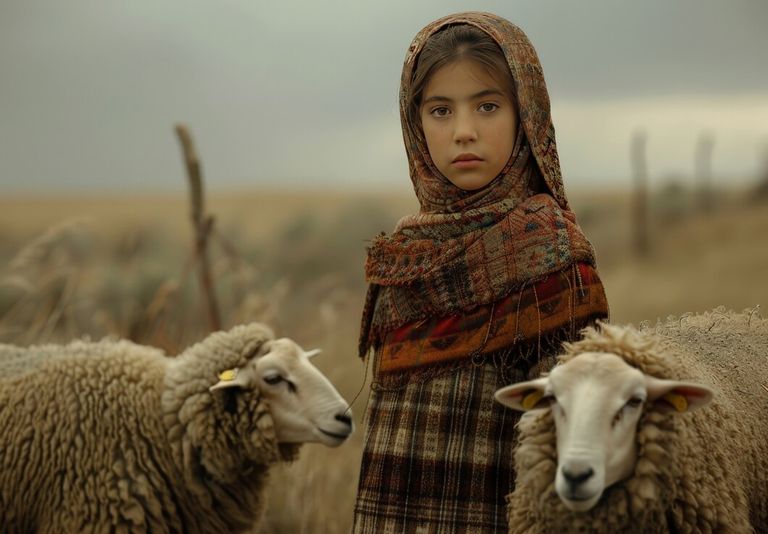
| One is the class that travels through trade or art, and the other is the class that lives through looting or illegal means. This was called the civilized nomad or in Europe they were called gypsies, while the other class who lived by looting or illegal means came to be called uncivilized nomads or barbarians. |
|---|
Gypsies are peaceful nomads who stay away from fights and riots, their livelihood is entertaining people with music, telling fortunes, doing various stunts, performing sports and performing arts and crafts. It also includes trading goods. Gypsies have gradually reached America, where they are also called Gypsies.|-|
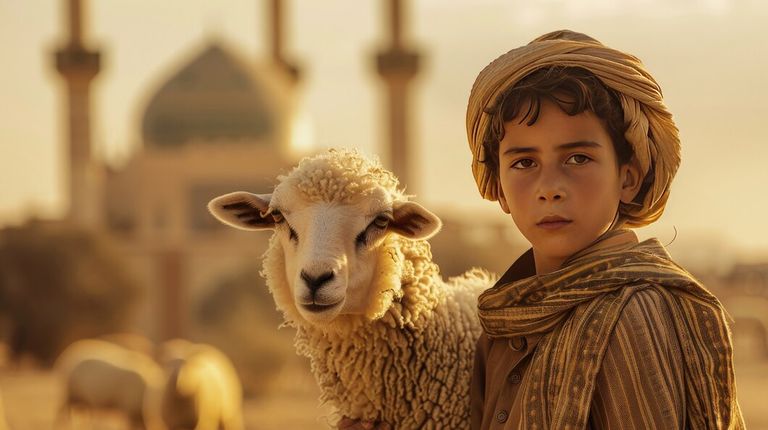
| After a long research, sociologists have come to the conclusion that nomadic tribes migrated from the regions of Punjab, Rajasthan and Sindh probably due to a big drought and spread in different countries. Central Europe and then spread throughout the world. They have no written history of their own and no knowledge of their past, so experts are unable to make an authoritative decision about why they finally migrated. And why forced to choose the difficult path of nomadism. Another important group of nomads was Banjars. They used to take grain from villages and villages and supply it to towns and cities. |
|---|
| Nazirabadi's famous poem "Banjara Nama" gives a complete description of the goods they traded. Their trade ended when the railways came to India and now goods started moving from one place to another through goods trains. According to the data of NGOs, the number of nomads in Pakistan is more than 10 million. There are different communities of these nomads, including Chingar, Oudh, Bhato, Jogi, Kenghar, Baaziar, Gurjmar, Gagre. |
|---|
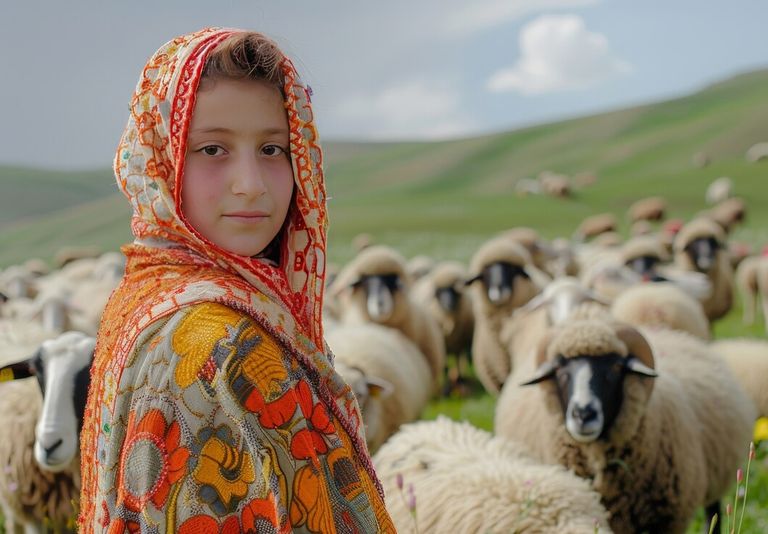
| The number of gypsies in provincial Lahore is estimated to be around 300,000. They are seen camping on river banks, railway lines, vegetable markets and other desolate and dirty places. If they do, they don't build a solid house, but like the example of a poem, "The house was built on the four straws placed on it" (Qamar Jalalvi), they live their lives by putting up temporary huts and tents. |
|---|
| In the past few days, Raqim experienced the lifestyle and problems faced by the nomads, when it was agreed to go to the nomads living around the Ravi River in Lahore, and Raqim spoke to the nomads there about their lifestyle and problems. When I inquired, I was saddened to hear their answer. The condition of their children is very bad. Their feet are healthy, but there are no shoes to wear. There are clothes on half of the body, but they are dirty and dirty and not a soft bed to sleep on, but full of thorns. See their lifestyle and problems in their own words. |
|---|
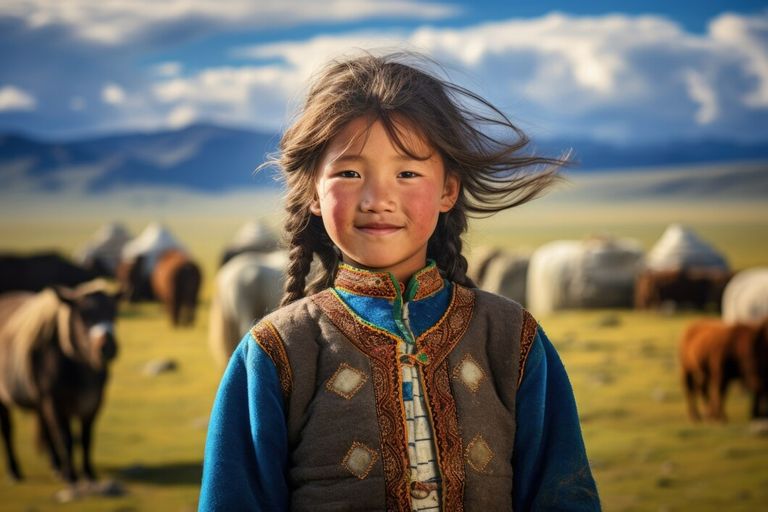
| Noshe Khan, an elderly member of this tribe of nomads, was asked where he is from. So they said, "We nomads have come from the remote areas of Balochistan and we belong to the Oudh community. When asked about the employment through them, they said that we poor nomads do not just beg, but some junk." Some of them are peddlers and some of them are living as drivers. They earn by themselves and eat by themselves. |
|---|
| Unfortunately, nomads are not looked upon favorably in our society, when asked what people think and feel about you when you travel. So see their simple answer that "some people harass us, but there are also some good people, our attitude is good to everyone, we treat everyone with respect." |
|---|
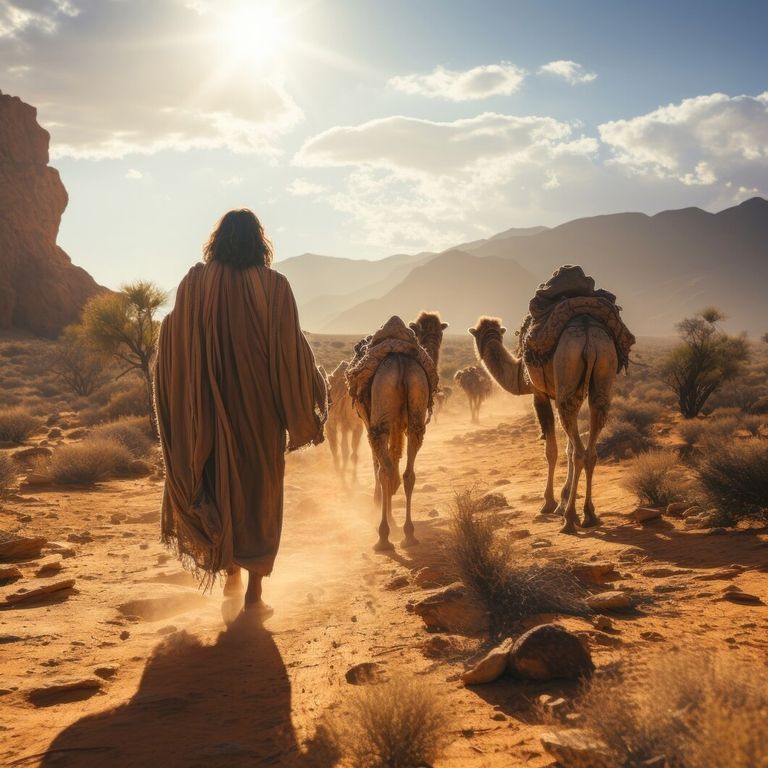
| Most of the nomads, who have many clans and communities, marry off their children early. Among the sellers of charity meat on the Ravi river bridge in Lahore, many young girls are seen, barely 16 to 18 years old, but they have carried children in their arms, based on this, it can be assumed that they got married at the age of 14, 15 years. When asked about their marriage rituals, they said " That marriage happens with our simplicity, |
|---|

| In our country, the marriage of boys and girls is done early so that they are free from evil. And get married. In Pakistan, a boy and a girl under the age of 18 cannot get married, the marriage ceremony was ordered that they will not perform the marriage without confirming the age of the girl and the boy, but after talking to various nomads. In the course of time, it was found that most of the Shariah marriages are taught here, for which there is no need for the age certificate of the boy and the girl. |
|---|
| When asked how do you get treatment if you fall ill, you say, "Majority of nomads do not have national identity cards due to which they cannot go to any major public/private hospital for treatment." There they ask for an ID card for registration, so we go to hakims or use our home remedies. |
|---|
| When asked how long do you stay in one place? So they say, "Staying in one place for twenty days or a month, they do not choose a place in advance where the green land is empty, but they stay for a while, they prefer the cold area. For the physical health of women." Working social activist Alina Azhar told "APP" that nomadic girls face many serious problems after marriage, they suffer from anemia, pregnancy at a young age often leads to maternal and child health problems. Death occurs or the first born child suffers from a physical or mental disability, then people use this disabled child as a source of income. |
|---|
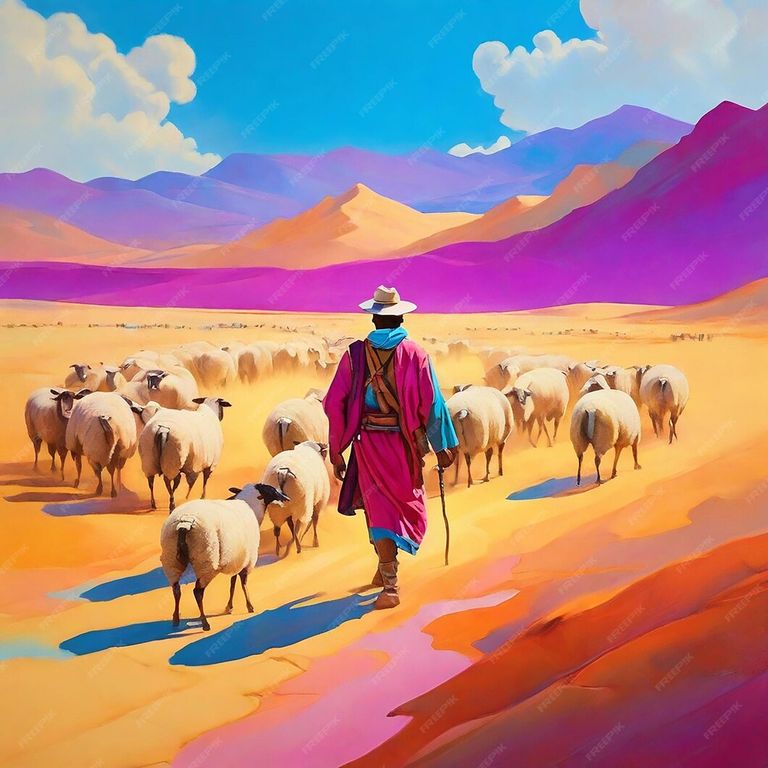
| One of the major causes of gynecological diseases among nomadic women is dirt, not following hygiene rules and early marriages. Professor Dr. Rubina Zakir, director of the Institute of Social and Cultural Studies of Punjab University, told "APP". He said that one way to teach the nomads about education and training is that students from colleges and universities go to their camp areas during summer or winter vacations and volunteer to teach the children. A scheme should also be set up to give educational certificates to the Gypsies and unless this is possible, Gypsies should be made a part of the textbooks. |
|---|
| He said that in Nepal, Sweden and some other countries, such laws have been made regarding the rights of nomads and there is a need to make such laws in Pakistan as well. A registration campaign should be conducted. |
|---|
خانہ بدوشوں کی تاریخ،طرز زندگی،معاشرت اور مسائل کا احاطہ کرتی تحریر
خانہ بدوش فارسی زبان کا لفظ ہے جس سے مراد وہ شخص جس کا کوئی مستقل ٹھکانہ نہ ہو۔انگریزی ادب میں اس کے لئے ویگرینٹ کا لفظ استعمال کیا جاتا ہے،خانہ بدوشوں کی طرز زندگی عام افراد سے مختلف ہوتی اور ان کا کوئی مستقل ٹھکانہ نہیں ہوتا،خانہ بدوش پسماندہ طبقے سے تعلق رکھتے ہیں،
خانہ بدوش جنہیں یورپ میں ”رومانی”اسپین میں ”گیٹانو”ترکی میں ”چنگنے” اٹلی میں زنگارو” فرانس میں” گیٹانو’زگیز اور منائچزز اور برصغیر میں بنجارے کہا جاتا ہے،اسی طرح دنیا کے مختلف علاقوں میں اس کے نام بھی اپنے کلچر کے مطابق ہیں۔ایک اندازے کے مطابق اس وقت دنیا بھر میں خانہ بدوشوں کی تعداد ایک کروڑ سے زیادہ ہے۔دنیا بھر میں80 فیصد خانہ بدوش یورپی ممالک جبکہ باقی20 فیصد امریکہ ،لاطینی امریکہ اور دنیا کے دیگر خطوں میں بستے ہیں،خانہ بدوشوں کیلئے ” بسنے ” کے لفظ سے مراد ان کا عارضی پڑائو ہوتا ہے۔
یہ خانہ بدوش کون ہیں یہ کہاں سے آئے ہیں اور یہ کیسے وجود میں آئے ہیں ‘اس پر ایک عرصہ سے تحقیق ہو رہی ہے۔جہاں تک خانہ بدوشی کی شروعات یا اس کے وجود کا تعلق ہے تو اس کیلئے ہمیں زمانہ قدیم کے انسان کے ساتھ چلنا ہو گا۔
یہ سرشام اپنے ٹھکانے پر واپس آجاتے تھے،پھر کچھ عرصہ بعد ان کا پڑائو کہیں اور منتقل ہو جاتا تھا،اس کے بعد اگلا قدم زراعت کی طرف اٹھا تو انہوں نے اپنا بسیرا بھی کھیتوں کے آس پاس کر لیا اور یوں ”بستیوں” کا رواج پڑ نا شروع ہو گیا،بیشتر قبائل ایسے بھی تھے جو ایک جگہ ٹک کر بیٹھنے کے قائل نہ تھے بلکہ متحرک رہنے کو ترجیح دیتے تھے۔چنانچہ یہیں سے ”خانہ بدوشی ” کا آغاز ہوا۔
خانہ بدوشی کی وجہ سے یہ لوگ نہ تو کہیں مستقل قیام کرتے تھے نہ بستیاں بساتے،نہ دولت جمع کرتے اور نہ ہی جائیدادیں بناتے تھے۔دنیا بھر میں ہر وقت متحرک ہونے کی وجہ سے اگرچہ یہ کئی زبانیں بولتے ہیں لیکن ان کی اپنی زبان”روما” کہلاتی ہے،جس میں برصغیر و پاک و ہندکے کئی الفاظ شامل ہیں ۔جہاں تک ان کی روایات کا تعلق ہے یہ دنیا بھر میں گھومنے کی وجہ سے بہت کم تعلقات بناتے ہیں۔
جس کی بڑی وجہ ان کا اقلیت میں ہونا ہے،اس کے علاوہ ان کا پڑائو عام طور پر آبادیوں سے ہٹ کر ہوتا ہے،اس لیے مقامی لوگوں سے ان کا ملنا جلنا دوسروں کی نسبت کم ہوتا ہے۔اس لیے یہ شادیاں بھی اپنے لوگوں سے ہٹ کر نہیں کر تے ہیں۔وقت کے ساتھ ساتھ زمانہ ترقی کرتا گیا لیکن انہوں نے اپنا رہن سہن ‘لباس اور طرز زندگی نہیں بدلا۔
یہی وجہ ہے کہ اپنی قدیم روایتی پوشاک’کانوں میں بالیاں اوراپنی مخصوص رنگت کی وجہ سے یہ دور سے ہی پہچانے جاتے ہیں ۔یہ لوگ ملازمت نہیں کرتے کیونکہ پیدائشی طور پر یہ آزاد فطرت لوگ ہیں،اس لیے گزر بسر کرنے کے لیے یہ کھیل تماشہ کرتے اور لوہے کے اوزار بنا کر فروخت کرتے تھے۔ان کی خواتین دھاگہ تیار کر کے کپڑا بناتیں اور روز مرہ کے کاموں میں مردوں کے ہاتھ بٹاتی تھیں۔
یہ لوگ خود بھی تعلیم سے عاری ہوتے اور اپنے بچوں کو بھی تعلیم سے دور رکھتے تھے۔جدید دور میں بھی جب مشرقی یورپ کے ملکوں نے انہیں اپنے ہاں مستقل آباد کرنے کی کوشش کی تو انہوں نے آزاد رہنے کو ہی ترجیح دی۔انہوں نے اس زمانے میں بھی زندگی گزارنے کا ایک متبادل طریقہ پیش کیا اور وہ یہ کہ ہر قسم کی پابندیوں سے آزاد رہ کر خوشی اور مسرت سے سادہ زندگی گزاری جائے۔
خانہ بدوشوں کی تاریخ چین،وسطی ایشیا،خراساں، کوہ قاف سے لے کر فرانس، اٹلی، سپین اور جرمنی میں بکھرے قبائل کا ذکر تاریخ میں ملتا ہے۔ان میں بہت سے قبائل خانہ بدوشی ترک کر کے مہذب دنیا میں شامل ہو گئے۔غذا اور شکار کے عہد کے بعد جب کچھ قبائل نے زراعت اختیار کرتے ہوئے آبادیاں بسائیں اور مستقل رہائش اختیار کر لی لیکن بہت سے ایسے قبائل بھی تھے جنہوں نے خانہ بدوشی کی زندگی ترک نہیں کی۔
انہوں نے نہ تو آبادیوں میں رہنا پسند کیا اور نہ ہی اپنا خانہ بدوشی کا کلچر چھوڑ کر خود کو بڑی تہذیبوں میں ضم کیا۔اس وجہ سے خانہ بدوشوں اور آبادیوں میں رہنے والوں میں ہمیشہ سے کلچر اور تہذیب کے درمیان تصادم رہا۔بستیوں کے آباد کاروں نے شروع میں انہیں”باربیرین ” یعنی وحشیوں کا خطاب دیا۔پیشہ زراعت اپنانے والے آباد کار مہذب انداز میں اپنے گزر بسر کا اہتمام کرتے رہے جبکہ خانہ بدوش جب گزر بسرکے لیے روزمرہ ضروریات زندگی کو حاصل نہ کر پاتے تو وہ آبادیوں میں لوٹ مار اور بعض اوقات قتل و غارت کو اپنا ذریعہ معاش بنا لیتے ۔یہیں سے خانہ بدوشی دو واضح طبقات میں بدل گئی۔
ایک وہ طبقہ جو بذریعہ تجارت یا فن کے ذریعے عازم سفر کرتا اور دوسرا وہ طبقہ جو لوٹ مار یا غیر قانونی ذرائع سے گزر بسر کرتا ۔وہ طبقہ جو بذریعہ تجارت یا فن جس میں گانا بجانا’ثقافتی کھیل تماشہ وغیرہ کے ذریعے زندگی گزارتا،اس کو مہذب خانہ بدوش یا یورپ میں انہیں جپسی کہا گیا جبکہ دوسرا وہ طبقہ جو لوٹ مار یا غیر قانونی ذرائع سے گزر بسر کرتا اس کو غیر مہذب خانہ بدوش یا باربیرین کہا جانے لگا۔
جپسی پر امن خانہ بدوش ہیں جو لڑائی اور دنگا فساد سے دور رہتے، ان کا ذریعہ معاش میلے ٹھیلے لگا کر لوگوں کو موسیقی سے محظوظ کرنا ‘قسمت کا حال بتانا’مختلف کرتب کرنا ‘کھیل تماشے کے ساتھ ساتھ اپنے ہاتھ کی بنائی ہوئی ثقافتی اشیا کی تجارت کرنا بھی شامل ہے۔جپسی رفتہ رفتہ امریکہ پہنچ گئے ہیں ‘وہاں بھی انہیں جپسی ہی کہا جاتا ہے۔
ماہرین عمرانیات ایک طویل تحقیق کے بعد اس نتیجے میں پہنچے ہیں کہ خانہ بدوش قبائل’ پنجاب ‘راجستھان اور سندھ کے علاقوں سے غالبا کسی بڑی خشک سالی کے باعث نقل مکانی کر کے مختلف ممالک میں پھیلتے چلے گئے۔خانہ بدوش قبائل بذریعہ کوہ ہندوکش مشرق وسطی’یورپ اور پھر پوری دنیا میں پھیل گئے ۔ان کی اپنی نہ تو کوئی تحریری تاریخ ہے اور نہ ہی انہیں اپنے ماضی بارے کوئی معلومات ہیں،اس لیے ماہرین اس بارے کوئی مستند فیصلہ کرنے سے قاصر ہیں کہ آخر انہوں نے ہجرت کیوں کی اور خانہ بدوشی کا کٹھن راستہ کیوں چننے پر مجبور ہوئے۔خانہ بدوشوں کا ایک اور اہم طبقہ بنجاروں کا تھا۔یہ گاوں ،دیہاتوں سے اناج لے کر قصبوں اور شہروں میں اس کی سپلائی کرتے تھے۔
نظیر آبادی کی مشہور نظم ”بنجارہ نامہ” میں ان اشیا کی مکمل تفصیل ہے جن کی یہ تجارت کرتے تھے۔ان کی تجارت کاخاتمہ اس وقت ہوا جب ہندوستان میں ریلوے آئی اور اب گڈز ٹرین کے ذریعے سامان ایک جگہ سے دوسری جگہ جانے لگا۔این جی اوز کے اعداد وشمار کے مطابق پاکستان میں خانہ بدوشوں کی تعداد 10 ملین سے زیادہ ہے۔ان خانہ بدوشوں کی مختلف برادریاں ہیں جن میں چنگر، اودھ، بھاٹو، جوگی، کینگھر، بازیگر، گرجمار،گگرے شامل ہیں۔
صوبائی لاہور میں خانہ بدوشوں کی تعداد کا تخمینہ پونے تین لاکھ تک لگایا گیا ہے’دریا کے کنارے’ریلوے لائنز ‘سبزی منڈیوںاور دیگر ویران اور گندی جگہوں پر اپنا پڑائو کرتے ہوئے نظر آتے ہیں۔ان خانہ بدوشوں کے طرز زندگی اور معاشرت کی بات کریں تو یہ کوئی پختہ مکان تعمیر نہیں کرتے ہیں بلکہ ایک شعر کے ”چار تنکے رکھ لیے جس شاخ پر گھر ہو گیا ”(قمر جلالوی) کے مصداق ہی یہ عارضی جھونپڑیوں اور خیمے لگا کر اپنی زندگی بسر کرتے ہیں۔
گزشتہ دنوں راقم کو خانہ بدوشوں کی طرز زندگی اور درپیش مسائل کا تجربہ ہوا،جب لاہورکے دریائے راوی کے آس پاس رہائش پذیر ان خانہ بدوشوں کے جانے کا اتفاق ہوا اور وہاں موجود خانہ بدوشوں سے ان کی طرز زندگی اور مسائل کے حوالے سے راقم نے استفسار کیا تو ان کا جواب سن کر دل افسردہ ہوا۔ان کے بچوں کی حالت زار نہایت ابتر ہے۔پاوں سلامت ہیں مگر پہننے کو جوتے نہیں۔بدن کے نصف حصے پر کپڑے ہیں مگر میلے کچیلے اور سونے کو نرم بستر نہیں بلکہ کانٹوں بھری زمین ہے۔ان کی طرز زندگی اور مسائل انہی کی زبانی ملاحظہ کریں۔
خانہ بدوشوں کے اس قبیلے کے ایک بزرگ فرد نوشے خان سے جب ان کا تعلق پوچھا گیا کہاں سے ہیں؟ تو ان کا کہنا تھا ”ہم خانہ بدوش بلوچستان کے دور افتادہ علاقوں سے آئے ہیں اور ہمارا اودھ برادری سے تعلق ہے۔ان کے ذریعہ روزگار کے بارے میں پوچھا تو ان کا کہنا تھا کہ ہم غریب خانہ بدوش صرف بھیک نہیں مانگتے بلکہ کچھ کباڑ کا کام کرتے،کچھ پھیری والے ہیں اور کچھ ڈرائیوری کر کے زندگی بسر کر رہے ہیں،خود کماتے ہیں خود کھاتے ہیں،کوئی تعاون کرنے والانہیں،کچھ نہ میسر ہو تو آرام کی نیند سو جاتے
،بد قسمتی سے خانہ بدوشوں کو ہمارے معاشرے میں اچھی نظر سے نہیں دیکھا جاتا،جب اس حوالے سے ان سے سوال کیا کہ آپ سفر کرتے ہیں تو لوگوں کا آپ کے بارے میں رویہ کیا ہوتا ہے اور لوگ آپ کے بارے میں کیا سوچھتے ہیں؟تو ان کا سادہ جواب ملاحظہ کریں کہ ”کچھ لوگ ہمیں تنگ کرتے ہیں،مگر کچھ اچھے لوگ بھی موجود ہیں،ہمارا رویہ ہر شخص سے اچھا ہوتا ہے،ہر شخص کو عزت کی نگاہ سے دیکھتے ہیں
، کیوں کہ ہم غریب اور بے گھر لوگ کسی سے بحث کریں گے تو اپنا ہی نقصان ہو گا،ان کے بچوں کی تعلیم و تربیت کے بارے میں سوال کیا تو ان کا کہنا تھا کہ بچوں کو کیا تعلیم دیں،رہنے کو جگہ ہو گی،کوئی مستقل ٹھکانہ ہو گا تو تعلیم دیں گے۔پیٹ بڑی مشکل سے بھرتا ہے تو تعلیم کیسے دیں گے؟دن کو جاتے ہیں کام پر اور جو لاتے ہیں اس سے ضروریات زندگی کی اشیا لاتے ہیں اور جب کچھ نہ ہو تو یہیں بیاباں علاقے میں پڑے ہیں،کوئی پرسان حال نہیں،کوئی فریاد سننے والا نہیں۔
خانہ بدوش جن کے کئی قبیلے اور برادریاں ہیں ان میں سے زیادہ تر اپنے بچوں کی شادیاں جلدی کر دیتے ہیں’لاہورکے دریائے راوی کے پل پر صدقہ گوشت بیچنے والوں میں کئی کم عمر لڑکیاں نظرآتی ہیں جن کی عمر بمشکل16 سے 18 سال ہوگی لیکن انہوں نے گود میں بچے اٹھائے ہوتے ہیں،اس کی بنیاد پر ایک قیاس کیا جا سکتا ہے کہ ان کی شادی بھی 14،15 سال کی عمرمیں ہوئی ہوگی۔جب ان کی شادی بیاہ کی رسومات کے حوالے سے سوال کیا تو ان کا کہنا تھا”کہ شادی بیاہ ہماری سادگی کے ساتھ ہوتی ہے،
ہمارے ہاں بچوں اور بچیوں کی شادی جلد کر دی جاتی ہے تاکہ وہ برائیوں سے بچے رہیں،ہم غریب لوگ ہیں اپنے ہی قبیلے میں شادی کرتے ہیں باہر کسی سے رشتہ داری نہیں کرتے،ہمارا جہیز وغیرہ کا کچھ نہیں ہوتا،ہم انگوٹھی پہنا دیتے اور نکاح کر لیتے ہیں۔پاکستان میں 18 سال سے کم عمر لڑکے اور لڑکی کی شادی نہیں ہوسکتی،نکاح خواں کو پابند کیا گیا کہ وہ لڑکی اور لڑکے کی عمر کی تصدیق کے بغیر نکاح نہیں پڑھائیں گے تاہم مختلف خانہ بدوشوں سے بات چیت کے دوران معلوم ہوا کہ ان کے یہاں زیادہ تر شرعی نکاح پڑھایا جاتا ہے جس کے لئے لڑکے اور لڑکی کی عمرکے سرٹیفکیٹ کی ضرورت ہی نہیں ہے۔
ان سے جب پوچھا گیا کہ آپ بیمار ہونے کی صورت میں کیسے علاج معالجہ کرتے ہیں ‘توکہتے ہیں ” خانہ بدوشوں کی اکثریت کے پاس قومی شناختی کارڈ نہیں ہیں جس کی وجہ سے یہ کسی بڑے سرکاری/ پرائیویٹ ہسپتال میں علاج کروانے نہیں جا سکتے کیونکہ وہاں رجسٹریشن کے لئے شناختی کارڈ مانگا جاتا ہے،اس لیے ہم حکیموں کے پاس جاتے ہیں یا پھر اپنے گھریلو ٹوٹکے استعمال کرتے ہیں ۔
ان سے جب پوچھا آپ ایک جگہ پر کتنا عرصہ قیام کرتے ہیں؟ تو کہتے ہیں”بیس دن یا ایک ماہ ایک جگہ پر قیام کرتے،پہلے سے کسی جگہ کا انتخاب نہیں کیا ہوتا جہاں سرسبز زمین خالی ہوئی وہیں پر کچھ عرصہ قیام کرتے ہیں،سرد علاقے کو ترجیح دیتے ہیں۔خواتین کی جسمانی صحت کے لئے کام کرنیوالی سماجی کارکن علینہ اظہر نے ”اے پی پی” کو بتایا کہ خانہ بدوش لڑکیوں کو شادی کے بعد کئی سنگین مسائل کا سامنا کرنا پڑتا ہے،ان میں خون کی کمی ہوتی ہے،کم عمری میں حاملہ ہونے سے اکثر زچہ اور بچہ کی موت ہو جاتی ہے یا پھر پیدا ہونیوالاپہلا بچہ کسی جسمانی اور ذہنی معذوری کا شکار ہوجاتا ہے،پھریہ لوگ اس معذور بچے کو کمائی کا ذریعہ بنا لیتے ہیں،
خانہ بدوش خواتین میں نسوانی بیماریوں کی ایک بڑی وجہ گندگی،حفظان صحت کے اصولوں پرعمل نہ کرنا اورکم عمری کی شادیاں ہیں۔پنجاب یونیورسٹی کے شعبہ انسٹی ٹیوٹ آف سوشل اینڈ کلچر ل اسٹڈیز کی ڈائریکٹر پروفیسر ڈاکٹر روبینہ ذاکر نے ”اے پی پی”کو بتایا کہ خانہ بدوشوں کی تعلیم و تربیت کے حوالے سے انہیں تعلیم دینے کا ایک طریقہ یہ ہے کہ کالجز اور جامعات کے طالب علم گرمیوں یا سردیوں کی چھٹیوں میں ان کے پڑائو والے علاقوں میں جا کر رضاکارانہ طور پر بچوں کو پڑھائیں،ان خانہ بدوشوں کو تعلیمی سرٹیفکیٹس دینے کا بھی کوئی لائحہ عمل ترتیب دیا جائے اور جب تک ایسا ممکن نہیں ہوتا تو خانہ بدوشوں کو نصابی کتابوں کا حصہ ضرور بنایا جائے۔
انہوں نے بتایا کہ نیپال،سوئیڈن اور کچھ دوسرے ممالک میں بھی خانہ بدوشوں کے حقوق سے متعلق ایسے قوانین بن چکے ہیں اور پاکستان میں بھی ایسے قوانین تشکیل دینے کی ضرورت ہے۔نادرا سمیت دیگر متعلقہ اداروں کو سفر کرنے والے کارکنوں کے لیے مقامی گھر رجسٹریشن مہم چلانی چاہیے۔